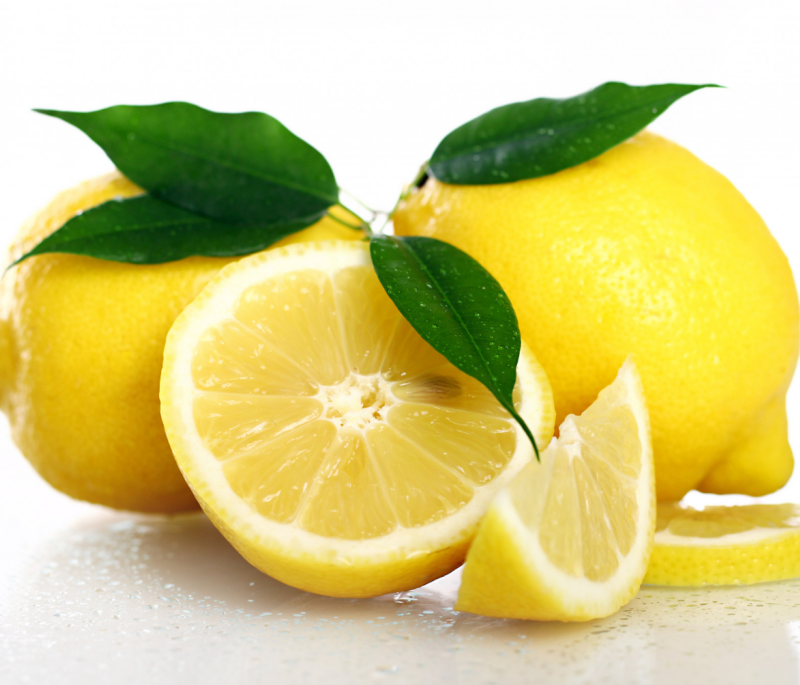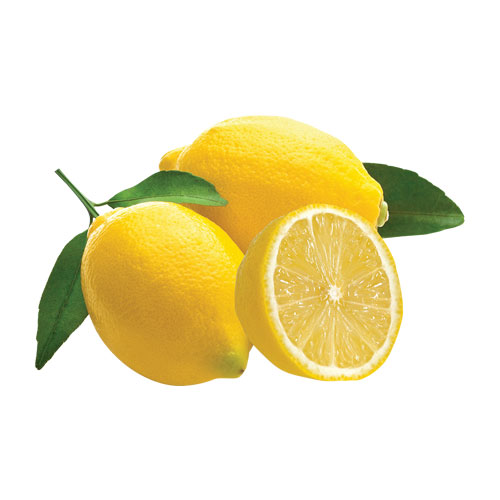Lemon

The lemon, a bright yellow citrus fruit, is globally known and appreciated for its sour and refreshing taste. This versatile fruit is used in numerous dishes and drinks, from salads and desserts to marinades and refreshing lemonades. Lemons are an essential source of vitamin C and other health-promoting nutrients, making them a significant part of many kitchens and cultures.
The origin of the lemon is not entirely clear, but it is believed that the fruit originated in South Asia, primarily in regions such as Northeast India, Northern Myanmar, and China. From there, the lemon spread to the Middle East, the Mediterranean, and eventually to the rest of the world. Today, lemons are grown in many warm climates, with countries such as Italy, Spain, India, Mexico, and the United States (especially California and Florida) leading in production.
Lemon trees thrive in warm, sunny climates and require well-drained, fertile soil to grow optimally. The ideal temperature for lemon trees is between 20-30°C. While lemon trees can withstand short periods of cold, they are sensitive to frost, which can damage the trees and reduce the harvest. Therefore, lemons are primarily grown in regions without harsh winters.
Growing lemons typically begins with planting seeds or young saplings. Professional growers often prefer planting grafted saplings because they bear fruit faster and offer higher yields. The soil in which lemon trees are planted should be well-drained and rich in organic matter. A soil pH value between 5.5 and 6.5 is ideal for the growth of lemon trees. Adding compost or other organic fertilizers can enhance soil fertility and support the growth of the trees.
Regular watering is crucial for lemon trees, especially during dry periods. The soil should remain consistently moist, but overwatering must be avoided to prevent root rot. Good drainage is essential to ensure that excess water can quickly drain away. Additionally, it is important to fertilize the trees regularly with a balanced fertilizer rich in nitrogen, phosphorus, and potassium. This helps keep the trees healthy and ensures good fruit production.
Pruning is another important aspect of lemon tree care. Removing dead or diseased branches can improve air circulation and help prevent fungal diseases. Thinning out densely grown parts of the tree can also contribute to better fruit development and higher yields.
Lemons are harvested when the fruits are fully ripe and have a bright yellow color. This usually occurs a few months after flowering, depending on the variety and growing conditions. The fruits should be harvested carefully to avoid damage. Lemons can stay on the tree until needed, as they are more durable than many other fruits.
Lemons have a wide range of culinary uses. They are often used fresh in salads, as a garnish for fish and meat dishes, and as a flavor enhancer in a variety of dishes. Lemon juice is frequently used in beverages such as lemonade, cocktails, and tea, as well as in marinades, dressings, and sauces. The zest of the lemon, rich in aromatic oils, is grated and used to add flavor to baked goods, desserts, and various dishes. Additionally, lemons are often used in preservation techniques, such as pickling and fermenting foods.
Outside the kitchen, lemons are also known for their health benefits. Rich in vitamin C, lemons help boost the immune system, promote skin health, and protect the body against diseases. Lemons also contain antioxidants, fiber, and other essential nutrients. Regular consumption of lemons can aid digestion, support weight loss, and provide natural detoxification for the body.
In conclusion, the lemon is a versatile and valuable fruit that holds an important place in kitchens around the world. Whether it’s the tangy flavor that brightens dishes, the health benefits it offers, or the many ways it can be used, the lemon remains an essential part of daily life. Growing lemons requires care and attention, but the reward is well worth it, with abundant harvests and endless possibilities for culinary and health-related uses. The lemon will continue to hold its place on tables with its flavor and nutritional value.
Verpakking
Enjoy Trade Consulting prioritizes quality throughout the shipping process while maintaining its commitment to meeting customer requests and ensuring customer satisfaction.
Within this scope, orders are shipped using 30x40x20 CARTON BOX packaging.
Season Information
| January | February | March | April | May | June | July | August | September | October | November | December |
|---|---|---|---|---|---|---|---|---|---|---|---|
 |  |  |  |  |  |  |  |  |  |  |  |

